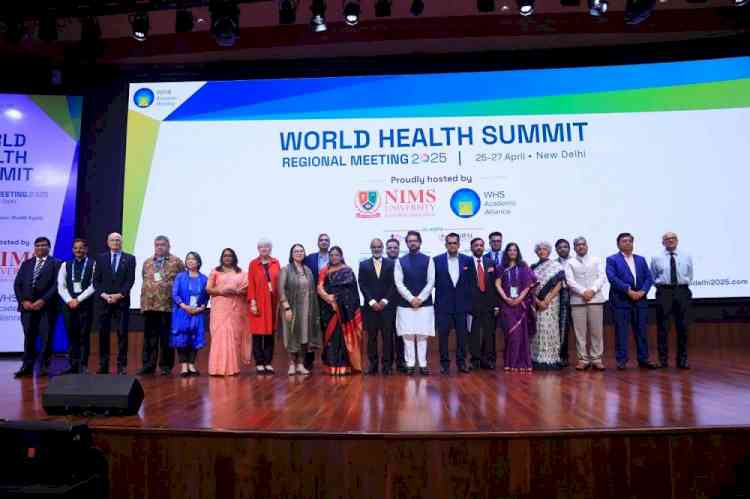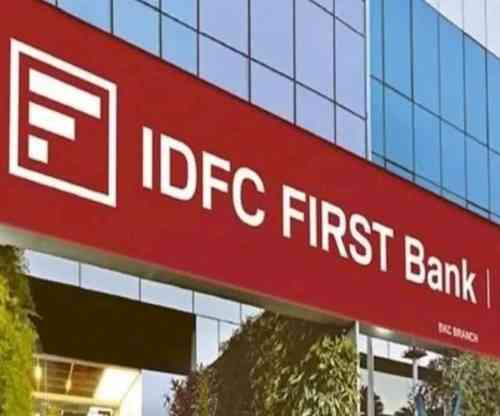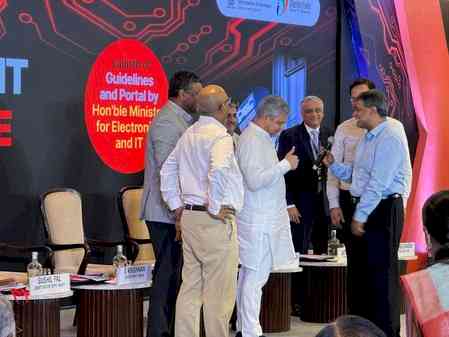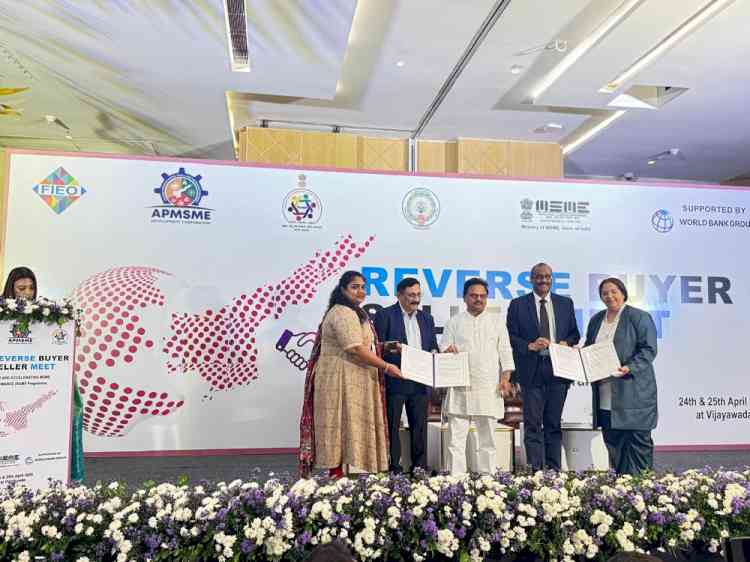This is not India’s digital decade but India’s health decade’, states Amitabh Kant at World Health Summit Regional Meeting 2025
World Health Summit Regional Meeting Debuts in India, marking a historic milestone for South Asia’s Global Health Leadership The summit witnessed participation from key government leaders and senior representatives from prestigious organizations such as NITI Aayog, WHO, UNICEF, UNDP, among others — underscoring the summit’s global relevance and collaborative spirit.

New Delhi, April 26, 2025: The World Health Summit (WHS)’s Regional Meeting 2025 opened at Bharat Mandapam, New Delhi - marking the first time this global platform is being hosted in India. Organised by the National Institute of Medical Sciences (NIMS) as a member of the WHS Academic Alliance in collaboration with Ashoka University and Manipal Academy of Higher Education, the summit has drawn a record-breaking registration of over 4,500 participants from over 54 countries, including more than 1,000 leading health experts, scientists, ministers, and policymakers. Under the overarching theme “Scaling Access to Ensure Health Equity”, the event aims to explore innovative, inclusive, and sustainable pathways to achieving health for all.
The inaugural day was marked by the presence of distinguished dignitaries from government and industry. Notable attendees included Shri Mansukh L. Mandaviya, Union Minister for Labour, Employment, Youth Affairs and Sports; Shri Arjun Ram Meghwal, Minister of Law and Justice of India, Shri Anurag Thakur, Member of Lok Sabha and Shri Amitabh Kant, G20 Sherpa. The event also welcomed senior leaders from globally renowned institutions such as NITI Aayog, WHO, UNICEF, and UNDP - reflecting the summit’s international significance and spirit of collaboration.
Inaugurating the World Health Summit, Anurag Thakur, Member of the Lok Sabha and Former Minister of Sports, Youth Affairs and Minister of Information and Broadcasting, said, “It is an honour to host the Summit on Indian soil for the first time. In a world where quality healthcare often remains a privilege, our gathering in New Delhi is a call to action. India, with over 1.43 billion people, has made bold strides to democratise healthcare - moving from selective interventions to a citizen-centric model rooted in financial protection and primary care. As we aim to become a developed nation by 2047, healthcare will remain central to our journey.”
Sharing his experiences and learnings, Minister of Labour and Employment and Minister of Youth Affairs and Sports and Former Union Minister of Health & Family Welfare, Shri Mansukh Mandaviya said, “For the world, health may be commerce, but for India, it is service - and service is our sanskaar. During COVID, our healthcare workers embodied this spirit. To make health accessible, we must make it affordable - and that begins by treating it as a service, not a business. When service, not profit, drives healthcare, it reaches the last mile."
Amitabh Kant, India’s G20 Sherpa and Former CEO, Niti Aayog, said, “India will grow from a $4 trillion to a $30 trillion economy by 2047, driven by human development and better quality of life - with health at its core. This is not just India’s digital decade; it’s India’s health decade. We are ready to co-lead and build an inclusive, sustainable, and resilient health-tech ecosystem.”
The first two days of the summit featured 9 keynote speeches, 80 panel discussions, 12 side meetings and 4 workshops - all addressing different themes and topics related to improving healthcare access, policy initiatives and building new health-tech solutions. Key panel discussions focused on strengthening primary healthcare delivery in South Asia, reimagining health systems for resilience and inclusivity, and exploring innovations in digital health to bridge the urban-rural access divide. Additional sessions delved into health financing models, data governance for public health accountability, and improving overall healthcare quality through digital technologies and AI.
Being one of the biggest health summits globally, the event also welcomed thought leaders from across the globe. Distinguished speakers included Former Prime Minister of New Zealand Helen Clark, Dr. Vinod Paul, Member, NITI Aayog; Dr. Soumya Swaminathan, Chairperson, M S Swaminathan Research Foundation; Rajiv Raghuvanshi, Drugs Controller General of India; Ms. Cynthia McCaffrey, Representative, UNICEF India, Indu Bhushan, Former CEO, Ayushman Bharat and President-iLEAP, Pahle India Foundation, amongst others.
Dr Anurag Agrawal, Dean of BioSciences and Health Research at the Trivedi School of Biosciences and Head of Koita Center for Digital Health at Ashoka, who also moderated the panel discussion titled ‘Digital Health Accreditation for Advancing Quality, Standardization, and Excellence: Best Practices from India,’ said, “The Summit is being hosted at India at a crucial moment when digital health and next-gen technologies like AI are playing a pivotal role in enhancing last-mile delivery of health services. However, significant gaps still persist in India and across South Asia. The discussions at WHS will provide a critical opportunity to address these gaps, foster collaboration, and identify scalable solutions to improve health outcomes for all.”
Ashoka University played an active role in several sessions on the first two days. Faculty from its Trivedi School of Bioscience and Koita Centre For Digital Health led an impactful panel on Digital Health and Scaling Access to AI-Powered Diagnostics, highlighting the role of academic research in shaping pragmatic, evidence-based health solutions. The University also engaged students and early-career researchers as volunteers and rapporteurs, offering them valuable exposure to high-level health diplomacy and international cooperation.
As the summit moves into its third day, discussions will turn toward the role of traditional medicines, gender-responsive health systems, and the future of global health partnerships. With representation from across South Asia and beyond, the WHS Regional Meeting 2025 is set to leave a lasting impact on how health equity is pursued in the region.


 City Air News
City Air News 










